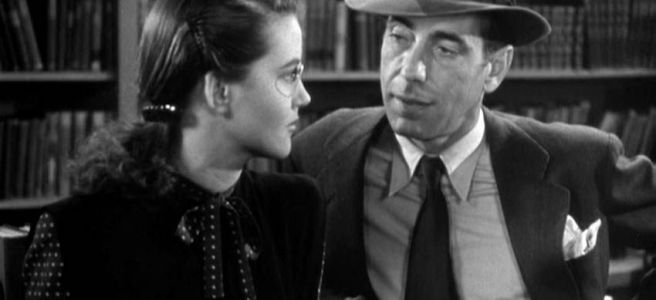Dorothy Malone
is the reason why
I never leave home
without a pocketful of rye
Let’s get this straight. Two complete strangers, a “fattish” detective and an alluringly bookish bookseller opportunistically find themselves alone, on a rainy afternoon, with nothing to do except share an opportunistic bottle of rye (who doesn’t carry one of those in their pocket) and for no good plot-related reason I can come up with, they have sex – yes, right there on the books, we presume – and then it’s “so long, pal”.
And it’s 1946. I didn’t know people actually had sex in 1946.
Well, it makes no sense to me, but like many classic-era Noirs – and The Big Sleep is nearly definitive – sometimes you love it for the style, not always the story. Even Raymond Chandler famously couldn’t explain the plot, and all he did was write the thing.
Regardless, this is an enchanting scene in a movie filled with them – delicious photography, atmosphere, repartee, sexuality, and glorious subtlety (when filmmakers assumed an American audience possessed the intellect to read between the lines). So, maybe you don’t always need logic and plot – sometimes you can just let yourself be charmed.

